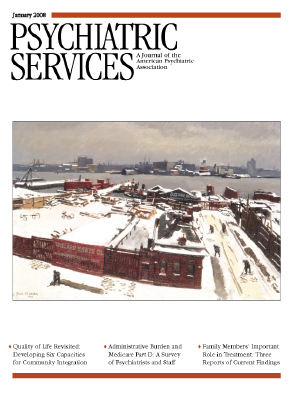Among all 50 states and the District of Columbia, South Dakota has the lowest prevalence of depression and Utah has the highest, according to a new report by Mental Health America (MHA). Hawaii was the second healthiest state with respect to depression, and New Jersey ranked third. Joining Utah at the bottom of the rankings were West Virginia, ranked 50th, and Kentucky, ranked 49th. The 46-page report, Ranking America's Mental Health: An Analysis of Depression Across the States, presents findings of statistically significant associations between several indicators of access to mental health care and depression levels and suicide rates.
The study found that, on average, states with more psychiatrists, psychologists, and social workers per capita had lower suicide rates. Rates of suicide and levels of depression were also significantly lower in states where a smaller proportion of residents reported that they could not obtain health care because of costs and where the percentage of residents reporting unmet mental health care needs was lower. Significant associations were also found for treatment utilization: the higher the percentage of the population receiving mental health treatment, the lower the suicide rate. In addition, suicide rates were lower and depression status better in states where the population had more years of education. States where a greater percentage of residents had health insurance had lower suicide rates. The study also found that in states with more generous mental health parity coverage a greater proportion of the population received mental health services.
The study, conducted for MHA by Thomson Healthcare in Washington, D.C., and supported through an unrestricted educational grant from Wyeth Pharmaceuticals, had two main purposes—to inaugurate the development of a public health surveillance system to monitor the mental health of Americans and to stimulate action by communities, public health professionals, federal and state policy makers, and others to reduce depression and suicide.
Four different measures of depression and mental health status were used to develop one composite measure of a state's level of depression. Data were from the National Household Survey on Drug Use and Health, conducted by the Substance Abuse and Mental Health Services Administration, and the Behavioral Risk Factor Surveillance System, conducted by the Centers for Disease Control and Prevention in conjunction with states. The four measures were the percentage of the adult population experiencing at least one major depressive episode in the past year, the percentage of adolescents experiencing at least one major depressive episode in the past year, the percentage of adults experiencing serious psychological distress, and the average number of days in the past 30 days in which individuals reported that their mental health was not good.
Rates of depression among the states varied from around 7% to more that 10%.
"Despite the fact that some states do better than others on rates of depression and suicide, no state can be satisfied with its current status," said David Shern, Ph.D., MHA president and chief executive officer. "These rates can be driven lower by encouraging state policies designed to improve coverage, end discriminatory practices in insurance, and assure that qualified mental health professionals are available to serve everyone in need."
The full report and ranking of the 50 states are available at www.mentalhealthamerica.net.

